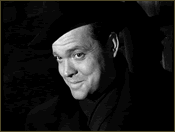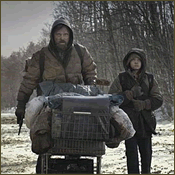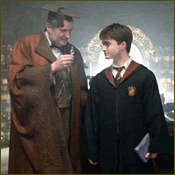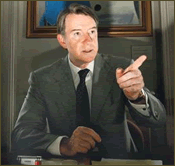January 31, 2010
 The economist John Maynard Keynes once famously said to a questioner, “When the facts change, I change my mind – what do you do, sir?” Similarly, I too have been subject to a political evolution since I was a young man, though it is fair to say that this development has been punctuated by particular milestones. The futility of the war in Iraq, and the lack of any evidence of chemical weapons was certainly an important step. Another point of change occurred when the size of government exploded under George W. Bush, which turned his libertarian rhetoric into a lie. Yet another step was taken when I had to face the necessity of readily available birth control and women’s reproductive services, when someone close to me attempted a dangerous procedure on themselves.
The economist John Maynard Keynes once famously said to a questioner, “When the facts change, I change my mind – what do you do, sir?” Similarly, I too have been subject to a political evolution since I was a young man, though it is fair to say that this development has been punctuated by particular milestones. The futility of the war in Iraq, and the lack of any evidence of chemical weapons was certainly an important step. Another point of change occurred when the size of government exploded under George W. Bush, which turned his libertarian rhetoric into a lie. Yet another step was taken when I had to face the necessity of readily available birth control and women’s reproductive services, when someone close to me attempted a dangerous procedure on themselves.
What put the seal on my evolution, however, was my experience in the business world. As a young man, I had rather sunny, optimistic views of the possibilities that capitalism had to offer. It made sense to think that the energies of the individual, if left unhindered, would make a better world. After all, efforts at collective endeavours had hitherto failed: I grew up in the shadow of the Cold War, and the grey bureaucratism of the USSR seemed to be an oppressive nightmare. My horrific visions were made flesh during a visit to Berlin; I arrived shortly after the infamous Wall opened. Citizens of all age groups and professions were in front of the Brandenberg Gate with pick axes. I borrowed a hammer and chisel and took a swing: I still have a piece of that hated barricade. Out of curiosity, I crossed the border with my family and wandered through the streets of what was then East Berlin.
Communism was a perverse way of life. One need not visit the prisons of the Stasi to get a hint of this: a look inside a parked Trabant was sufficient. It was as if the society and its accoutrements had reached a certain point of development and then froze up. Buildings around me were crumbling; the scent of an open sewer was in evidence. Perhaps strangely, my father thought it would be interesting if we had dinner in a Chinese restaurant in the East. I ordered a diet cola and was rewarded with a sludgy, bitter drink that burned my throat on the way down. The meat that accompanied dinner came from animals that were apparently starved, and the ingredients, though reasonably well prepared, were obviously sub-par. Even the money was odd: the coins were made of aluminium and felt as if they would bend in my hands, provided I exerted enough effort. My later studies indicated that this was about as far as Communism got; a subsequent visit to Russia several years later showed me living conditions that were much, much worse.
However, it must be said that if collectivist endeavours failed, then the opposite hasn’t been a roaring success either. It took me longer to come to terms with the failure of the capitalist dream, but over time, I became acquainted with its ethos and was worn down by it during my 14 years in the business world.
If I were to use a fictional character to summarise the attitude of many businessmen I’ve encountered, it would be Harry Lime, the antagonist from the 1949 British film, “The Third Man”. For those who are unfamiliar with this movie, Lime is a racketeer who made a profit in post-war Vienna by stealing pencillin from military hospitals, diluting it, and then selling on the lesser-strength medicine to other clinics, including those treating children. When asked by a friend whilst standing at the top of a Ferris Wheel how he could be so callous towards innocent people, Lime, brilliantly played by Orson Welles, gave the following response:
Don’t be melodramatic. Look down there. Tell me. Would you really feel any pity if one of those dots stopped moving forever? If I offered you twenty thousand pounds for every dot that stopped, would you really, old man, tell me to keep my money, or would you calculate how many dots you could afford to spare? Free of income tax, old man. Free of income tax – the only way you can save money nowadays.
Furthermore, Lime believes that his activities are achieving some sort of moral good by contributing to the chaos of the time. He stated:
Like the fella says, in Italy for 30 years under the Borgias they had warfare, terror, murder, and bloodshed, but they produced Michelangelo, Leonardo da Vinci, and the Renaissance. In Switzerland they had brotherly love: they had 500 years of democracy and peace, and what did that produce? The cuckoo clock.
One can argue with the accuracy of the statement, as the Germans invented the cuckoo clock, and the Swiss invented the internal combustion engine, the breech-loading rifle, the chemical theory of electricity and velcro among other things. However, I found that Lime’s attitude was prevalent among many of my superiors. The emphasis was always on making profits, right now, ignoring the short-term and long-term consequences, and usually, ethics was a secondary consideration, if it entered the managerial mind at all. Often, it was only paid lip service.
This callousness was particularly evident in how my employees were treated. I have worked in companies in which my teams had their jobs outsourced, and I had to be strident in order to ensure they received a just settlement. I have worked in other firms in which promises of promotion and pay rises were not met in spite of superlative performance. Each and every time, I have seen corners being cut, quality trimmed, efficiency put aside, so long as there was a perception that it would generate more cash in a brief timescale, even if the result in a longer context would be to diminish the viability and the reputation of the firm. Perhaps the most blatant example of “Lime-ism” in operation occurred whilst I was working in the travel industry; on the website for which I was responsible, one could book a rental car along with a flight. The default for renting a car was ticked, sensibly, “no”. At that point in time, the profit margins on flights was in decline, and the company was having difficulty trying to generate other forms of revenue.
The Managing Director, who was notorious for his somewhat “hands on” relationship with female employees, asked me to change the default on the car rental option to “yes”. He reasoned that this would increase rentals in a short amount of time; I disagreed as logically it would only increase the amount of accidental rentals. What made the situation even more perplexing was that I soon discovered it had been tried before, and a great many refunds had to be processed as a result. But this didn’t matter to my boss, as it would boost his sales figures, albeit temporarily. Furthermore, he tried to argue that this was providing a better service indicating a logic that could best be called convoluted.
It was the “touch of Lime” that plagued my former boss and his counterparts which perhaps answers the great question of our age: how did we get here? Why are things so bad? It may be because we were so busy thinking about today and not mindful of its consequences, we forgot about tomorrow. The future arrived and laid us low. We have gigantic bills to pay for our lack of vision and absence of consideration. But an iron law remains: the cheque always comes due, and it is always paid.
Communism failed because it thought that gigantic solutions imposed by a dictatorial government would lead to human happiness; what it led to was East German diet cola, Trabants, murder and a bloated secret police. Capitalism has failed because it turned into a mess of short term gains for the rapacious which chewed up the requirements of the future.
So the facts have changed, and I changed my mind; I believe more than ever that what we need is to think long-term first, short-term second. Our societies need to emphasise education in order to achieve this change in individual thinking, and also to reverse the damage that the present business culture is inflicting on the world. We need sensible regulation, and we need to be sceptical of any solution that does not emphasise locality. Ideally, people should be allowed to use democratic means to decide the fate and direction of their communities. Finally, in order to shame and disgrace the Harry Limes of this world, we need to emphasise human rights and the dignity of the individual, which is not always achieved through less regulation: on the contrary, a strong referee saying “no” can be more effective.
I still remain a sceptic, overall. I recall the wise words of a former German Communist in a BBC documentary about the rise of the Nazis, that there is always a danger in a crisis, that someone will come along stating they have all the answers. Fortunately, our era is sufficiently cynical that demagogues are not widely believed: this is progress. However, the Harry Limes still prosper, and as a world, we have not yet made up our mind how best to rein them in. This conversation and resulting action, still needs to take place.

 Commentators often try to obscure simple truths by utilising the dry vocabulary of economics. Behind all the superfluous talk of deficits and GDP figures, there is one underlying fact: we’re not as rich as we used to be, or rather, not as wealthy as we thought we were. Governments and citizens alike got caught up in the heady pleasures of cheap credit and indulged primal instincts to grab everything they desired. People bought expensive cars, expensive homes, expensive televisions, believing that somehow, some way, the debts would be paid. Governments also spent wildly: on wars, on public works, on bridges to nowhere, even sometimes on worthy things like education and health. They believed that tax revenues would somehow be sustained, and indeed, rise to the point that they would solve deficit problems.
Commentators often try to obscure simple truths by utilising the dry vocabulary of economics. Behind all the superfluous talk of deficits and GDP figures, there is one underlying fact: we’re not as rich as we used to be, or rather, not as wealthy as we thought we were. Governments and citizens alike got caught up in the heady pleasures of cheap credit and indulged primal instincts to grab everything they desired. People bought expensive cars, expensive homes, expensive televisions, believing that somehow, some way, the debts would be paid. Governments also spent wildly: on wars, on public works, on bridges to nowhere, even sometimes on worthy things like education and health. They believed that tax revenues would somehow be sustained, and indeed, rise to the point that they would solve deficit problems. The economist John Maynard Keynes once famously said to a questioner, “When the facts change, I change my mind – what do you do, sir?” Similarly, I too have been subject to a political evolution since I was a young man, though it is fair to say that this development has been punctuated by particular milestones. The futility of the war in Iraq, and the lack of any evidence of chemical weapons was certainly an important step. Another point of change occurred when the size of government exploded under George W. Bush, which turned his libertarian rhetoric into a lie. Yet another step was taken when I had to face the necessity of readily available birth control and women’s reproductive services, when someone close to me attempted a dangerous procedure on themselves.
The economist John Maynard Keynes once famously said to a questioner, “When the facts change, I change my mind – what do you do, sir?” Similarly, I too have been subject to a political evolution since I was a young man, though it is fair to say that this development has been punctuated by particular milestones. The futility of the war in Iraq, and the lack of any evidence of chemical weapons was certainly an important step. Another point of change occurred when the size of government exploded under George W. Bush, which turned his libertarian rhetoric into a lie. Yet another step was taken when I had to face the necessity of readily available birth control and women’s reproductive services, when someone close to me attempted a dangerous procedure on themselves. Movies about the apocalypse are commonplace. Late last year, audiences were “treated” to the latest in a long line of films which contemplated the end of the world, namely “2012”,
Movies about the apocalypse are commonplace. Late last year, audiences were “treated” to the latest in a long line of films which contemplated the end of the world, namely “2012”,  A new year, a new Doctor: I suppose that was the motto the programme planners at the BBC had in mind when they scheduled the new Doctor Who to take over on January 2. I must confess that I was worried about the change: David Tennant has become a television icon over the past four years and almost as much a living symbol of the Doctor as Tom Baker. His replacement, Matt Smith, is 26 years old: for much of his life, the Doctor wasn’t in production. As a result, it may have been barely a speck on the fringe of his cultural awareness. Given this, how well will he perform in the role? I remain uncertain.
A new year, a new Doctor: I suppose that was the motto the programme planners at the BBC had in mind when they scheduled the new Doctor Who to take over on January 2. I must confess that I was worried about the change: David Tennant has become a television icon over the past four years and almost as much a living symbol of the Doctor as Tom Baker. His replacement, Matt Smith, is 26 years old: for much of his life, the Doctor wasn’t in production. As a result, it may have been barely a speck on the fringe of his cultural awareness. Given this, how well will he perform in the role? I remain uncertain. I have been struggling to come up with a suitable metaphor for the state of the economy at present; however, I literally fell into one this morning.
I have been struggling to come up with a suitable metaphor for the state of the economy at present; however, I literally fell into one this morning. Apart from “I love you”, perhaps the most dangerous statement in the English language is “Things couldn’t get worse”. In my experience, uttering this phrase is an invitation for evil to arrive. Indeed, I have wondered if the present Prime Minister has said it more than a few times. Faced with a teetering economy, he might have let fly with a “things couldn’t get worse”: then Northern Rock collapsed. Perhaps after having (sort of) cleared up that mess, he then may have tried to comfort himself with a “well, at least things couldn’t get worse”. Presumably this was followed by the financial obliteration of Halifax Bank of Scotland and the Royal Bank of Scotland plus the massive bailouts this entailed. If my assumption is correct, then perhaps his advisors would be well advised to grab a parcel full of duct tape and proceed to seal their master’s mouth shut, lest his curse strike again.
Apart from “I love you”, perhaps the most dangerous statement in the English language is “Things couldn’t get worse”. In my experience, uttering this phrase is an invitation for evil to arrive. Indeed, I have wondered if the present Prime Minister has said it more than a few times. Faced with a teetering economy, he might have let fly with a “things couldn’t get worse”: then Northern Rock collapsed. Perhaps after having (sort of) cleared up that mess, he then may have tried to comfort himself with a “well, at least things couldn’t get worse”. Presumably this was followed by the financial obliteration of Halifax Bank of Scotland and the Royal Bank of Scotland plus the massive bailouts this entailed. If my assumption is correct, then perhaps his advisors would be well advised to grab a parcel full of duct tape and proceed to seal their master’s mouth shut, lest his curse strike again. We live in an era that is addicted to communication. I thought about this last night whilst having a chat about talk shows: the person I was conversing with and I were disgusted that certain members of the general public are willing to divulge even the most gross personal details of their daily routine. For example, supposedly, a popular sitcom actress from the Seventies recently revealed not only that she consumed heavy amounts of hormones, also, she injected a cocktail of serum directly into her groin on a daily basis. Supposedly this helps maintain her sexual vitality, despite her having long ago vaulted over the age of fifty.
We live in an era that is addicted to communication. I thought about this last night whilst having a chat about talk shows: the person I was conversing with and I were disgusted that certain members of the general public are willing to divulge even the most gross personal details of their daily routine. For example, supposedly, a popular sitcom actress from the Seventies recently revealed not only that she consumed heavy amounts of hormones, also, she injected a cocktail of serum directly into her groin on a daily basis. Supposedly this helps maintain her sexual vitality, despite her having long ago vaulted over the age of fifty. Going to see a Harry Potter film bears a similarity to attending a family reunion, particularly if the relatives live far away. At each event, one expects changes, one sees changes: the kids grow up, the adults get older. There are interesting stories to tell about the intervening period and much to catch up on, before, sadly, it is time to part yet again.
Going to see a Harry Potter film bears a similarity to attending a family reunion, particularly if the relatives live far away. At each event, one expects changes, one sees changes: the kids grow up, the adults get older. There are interesting stories to tell about the intervening period and much to catch up on, before, sadly, it is time to part yet again. I’ve lately taken to referring to Gordon Brown as “Prime Minister Crackpot”. Part of it is due to his mad insistence on clinging to power when no one believes he can actually accomplish any further good. Beyond this, however, he has shown even greater signs of mental disturbance: for example, he has tried to squash any talk of spending cuts by a future Labour government. He stated in one of his latest clashes during Prime Minister’s Question Time that “investment” would continue to grow, year on year, henceforth and forevermore and in contrast, the Tories would cut spending by ten percent.
I’ve lately taken to referring to Gordon Brown as “Prime Minister Crackpot”. Part of it is due to his mad insistence on clinging to power when no one believes he can actually accomplish any further good. Beyond this, however, he has shown even greater signs of mental disturbance: for example, he has tried to squash any talk of spending cuts by a future Labour government. He stated in one of his latest clashes during Prime Minister’s Question Time that “investment” would continue to grow, year on year, henceforth and forevermore and in contrast, the Tories would cut spending by ten percent. I'm a Doctor of both Creative Writing and Manufacturing and Mechanical Engineering, a novelist, a technologist, and still an amateur in much else.
I'm a Doctor of both Creative Writing and Manufacturing and Mechanical Engineering, a novelist, a technologist, and still an amateur in much else.




